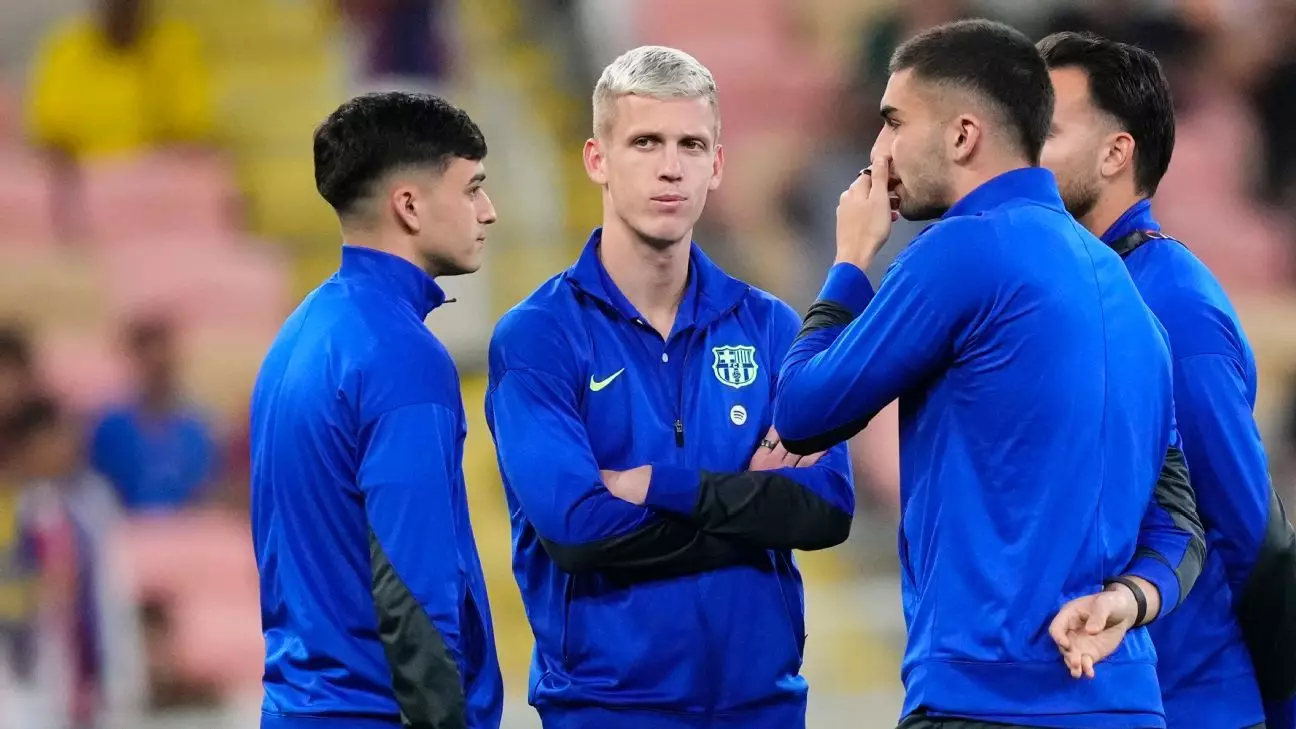The footballing world is rife with intricacies, often involving complex interactions between clubs, governing bodies, and—most importantly—financial regulations. Recently, FC Barcelona found itself at the center of a storm when the nation’s top sports court granted temporary registrations to Dani Olmo and Pau Víctor, despite these players previously being denied registration by both LaLiga and the Royal Spanish Football Federation (RFEF). The situation has drawn sharp criticism, particularly from Athletic Club, highlighting a growing divide in football governance and fairness within Spanish football.
As the year turned, Barcelona faced scrutiny for failing to comply with LaLiga’s strict financial fair play regulations. Specifically, the club missed a crucial deadline on December 31, which obligated them to prove their financial compliance in order to register new players. Despite this setback, Barcelona appealed to the Spanish Sports Council (CSD) and succeeded in temporarily securing the right for Olmo and Víctor to play. While this move allowed the club to field its new signings, it also raised questions about the integrity of football’s governing bodies in Spain.
Athletic Club’s president, Jon Uriarte, was vocal about the “grotesque” nature of this provisional ruling, criticizing the decision as politically motivated rather than grounded in sportsmanship or fairness. His comments, made prior to Athletic’s 2-0 defeat to Barcelona in the Spanish Supercopa semifinal, highlighted a pressing issue: Are the rules of football uniformly applied, or do they favor certain clubs? Uriarte’s frustrations echoed the sentiments of many in the football community, prompting a broader discussion around equity in sports governance.
Following the CSD’s decision, Athletic Club stood out as the only Spanish team to publicly confront the issue. The apparent unfairness felt by the club underscores a pervasive belief among some teams that larger clubs, like Barcelona, often maneuver within the system with impunity. This has sparked charges of favoritism and inconsistency, contributing to a growing narrative that Spanish football’s competitive balance is at risk.
In defense of Barcelona, sporting director Deco attempted to downplay the criticisms, arguing that every club is responsible for managing its own issues and that the decision was made by relevant authorities for a reason. Yet his comments, rather than alleviating tensions, may have appeared dismissive to those who feel marginalized by Barcelona’s high-profile status. The underlying concern remains: who truly holds accountability in football governance, and does the system serve all participants equally?
The discontent surrounding the CSD’s move extends beyond administrative concerns; it permeates through to players themselves. Athletic forward Iñaki Williams expressed his worry that Spanish football might be “tarnished” due to the perceived inequities in decision-making processes. Williams’ insight reflects the broader disillusionment felt by many players who strive for consistency and fairness in their professional careers. His comments underscore the importance of maintaining integrity not just on the field, but within the entire structure of football administration.
LaLiga president Javier Tebas added his voice to the debate, expressing surprise at the CSD’s decision and questioning the apparent silence from Real Madrid TV regarding these developments. This indicates that the unrest surrounding the registration of players is not isolated to Athletic Club but resonates among various stakeholders in Spanish football. The reaction from multiple parties suggests that substantial discontent could lead to calls for reform in regulatory practices that govern player registrations and financial compliance.
As Olmo and Víctor prepare to play in the upcoming Spanish Supercopa final, the broader narrative remains unsettled. The future of Barcelona, along with its competitors, may hinge on establishing clearer and more equitable standards within the football governance structure. The need for unity and fairness across the board is essential for the health of Spanish football.
The current situation involving Barcelona and the temporary player registrations encapsulates a larger conversation about governance, fairness, and integrity in sports. It presents an opportunity for stakeholders across the football spectrum to advocate for reforms that ensure equitable treatment for all clubs, safeguarding the integrity of the beautiful game.

